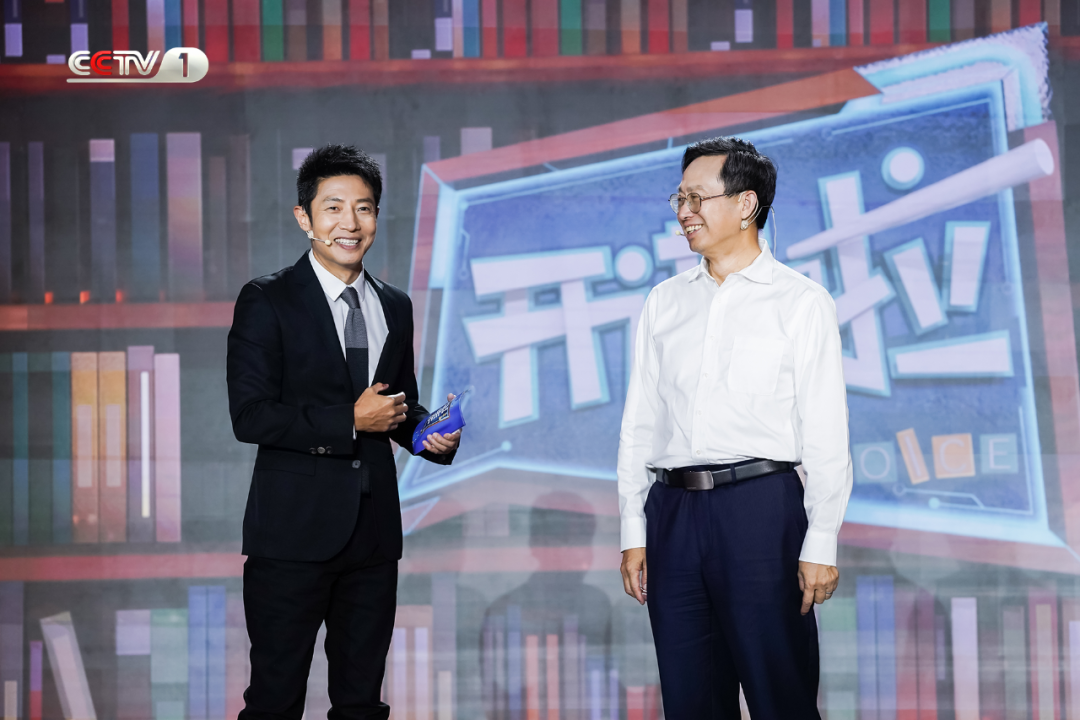What kind of college education do young people need in today’s world? What are the expectations for top innovative talent globally? Fourteen years ago, Tsinghua’s “Qian Class” initiative started to address Qian Xuesen’s question. What are the new ideas and explorations on this question now?

On July 22, Zheng QuanShu, an academician of the Chinese Academy of Sciences, the founding chief professor of Tsinghua University’s “Tsien Class,” and the founding dean of Shenzhen X-institute,appeared on CCTV’s “Voice.” During the lecture, he delved into the intricacies of the “Money Class” and shared insights into his unwavering commitment to innovative education, as well as the practical experiences and training methods employed to nurture innovative talents.

The “Tsien” in Tsinghua Tsien Class refers to the question posed by Tsien Xuesen, which revolves around the challenge of training exceptional scientific and technologically innovative talents in Chinese high education. In 2009, the Tsien Mechanics Class was established at Tsinghua University with the purpose of exploring and nurturing innovative talents who are passionate about using technology to make a positive impact on the world. As the most enigmatic class at Tsinghua University, the Tsien Class has specific criteria for student admission. These criteria are designed to select students who demonstrate exceptional potential, passion for innovation, and a strong commitment to making a difference in society through their technological pursuits.

According to Academician Zheng Shuquan, the cultivation of innovative talents goes beyond academic achievements or specific professions. It is about nurturing individuals who possess a dream in their hearts, evident through the sparkle in their eyes when discussing their aspirations. Academician Zheng Shuquan emphasizes that cultivating innovative talents involves not only acquiring knowledge but also developing the ability to learn and fostering a creative mindset. The “money class” does not focus on testing memorized content but rather aims to cultivate students’ cognitive creativity. This type of cognition, even if human beings are surpassed by artificial intelligence, remains irreplaceable.
Therefore, the question arises: should we engage in scientific research as early as possible?In terms of the average age at which Nobel laureates publish their work, the closest stage globally is around 40 years old.

Indeed, Academician Zheng Shuquan highlights the potential for significant impact when a new discovery is made. The process often begins with a single groundbreaking discovery, which then paves the way for subsequent smaller discoveries. These subsequent discoveries can build upon each other, leading to a chain of beneficial discoveries. This cumulative effect can ultimately result in a substantial impact on various fields of study or industries.
This process requires moments of inspiration, flashes of insight, and persistent exploration over a decade or two. Often, those who break new ground are more likely to be recognized with the Nobel Prize.

This process requires moments of inspiration, flashes of insight, and persistent exploration over a decade or two. Often, those who break new ground are more likely to be recognized with the Nobel Prize.
Academician Zheng Shuquan emphasizes that the essence of education is to empower students to explore their own abilities and discover their areas of excellence. He encourages students to embrace and appreciate the differences among individuals, focusing on their own passions and preferences. According to him, when individuals pursue what they are most passionate about, they can excel in their chosen field and shine. Academician Zheng Shuquan believes that everyone has the potential to be a leader in their own chosen field by showcasing their best qualities and pursuing what they truly desire. In his speech, he not only shares the teaching practices and compelling cases from the establishment of Tsinghua’s “Tsien Class” over the past decade but also provides insights into education through his personal growth and learning experiences.

According to Academician Zheng Shuquan, achieving success is not about surpassing others in every aspect. It is about having the ability to identify and accomplish the right tasks, even those that others may not be aware of yet. It involves being a pioneer, having the courage to undertake groundbreaking endeavors that have never been done before.
He believes that education through innovation is the pinnacle of human growth. Each individual has the capacity to excel in different areas, leading to personalized growth. Innovation involves constantly challenging oneself, embracing the unknown, and meeting the demands of the future. Academician Zheng Shuquan envisions a future of education where innovation is at the forefront, emphasizing the importance of collective efforts in shaping this future.
Academician Zheng Shuquan concludes by providing his own perspective and response to “Qian Xuesen’s question”: advocating for innovative education, having faith in its potential, and promoting its implementation. He believes that by embracing innovative education, the future generation will thrive and develop in an environment that fosters creativity and innovation.